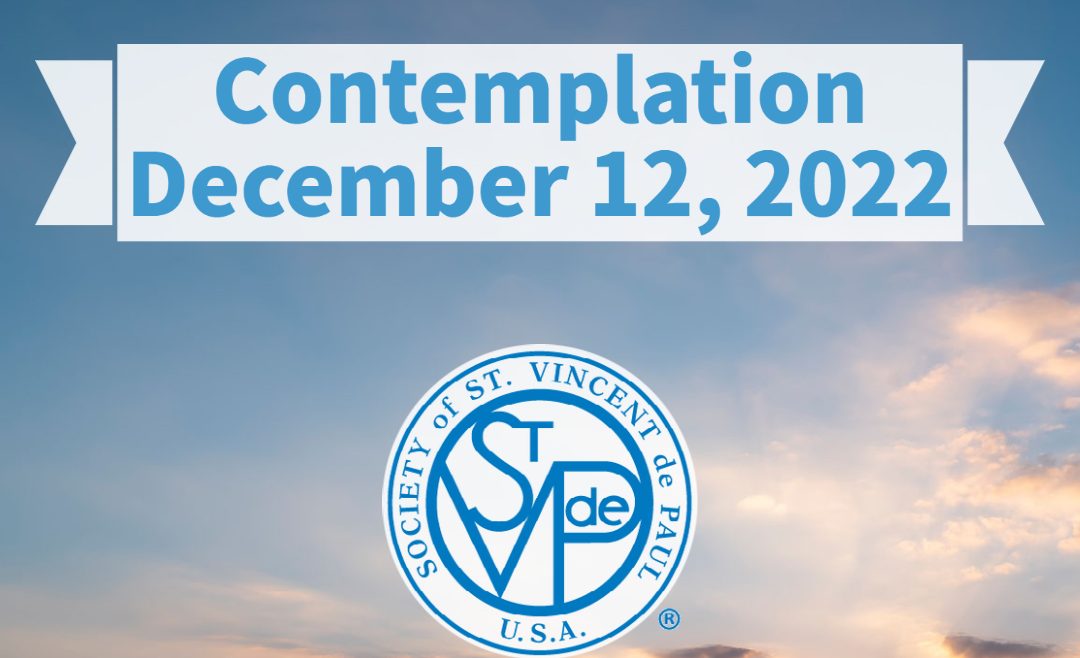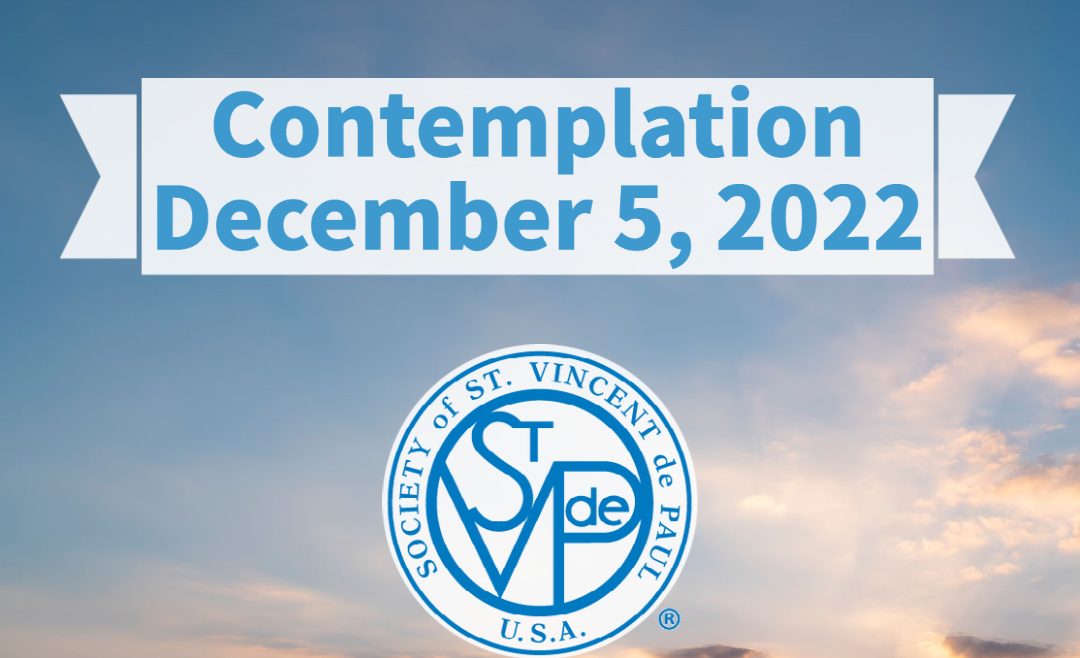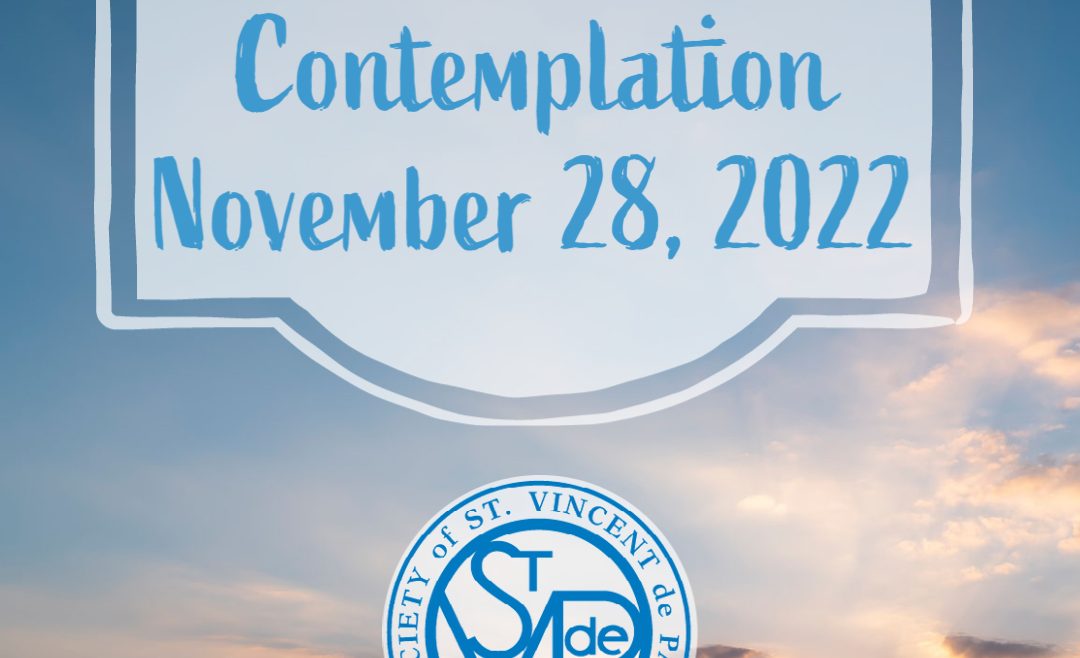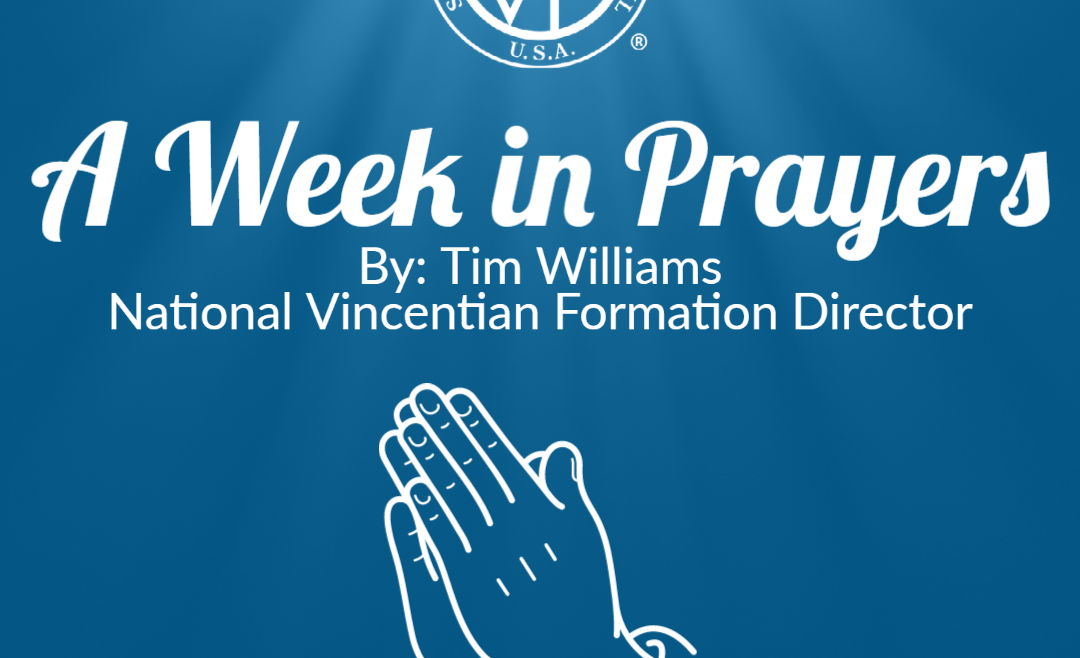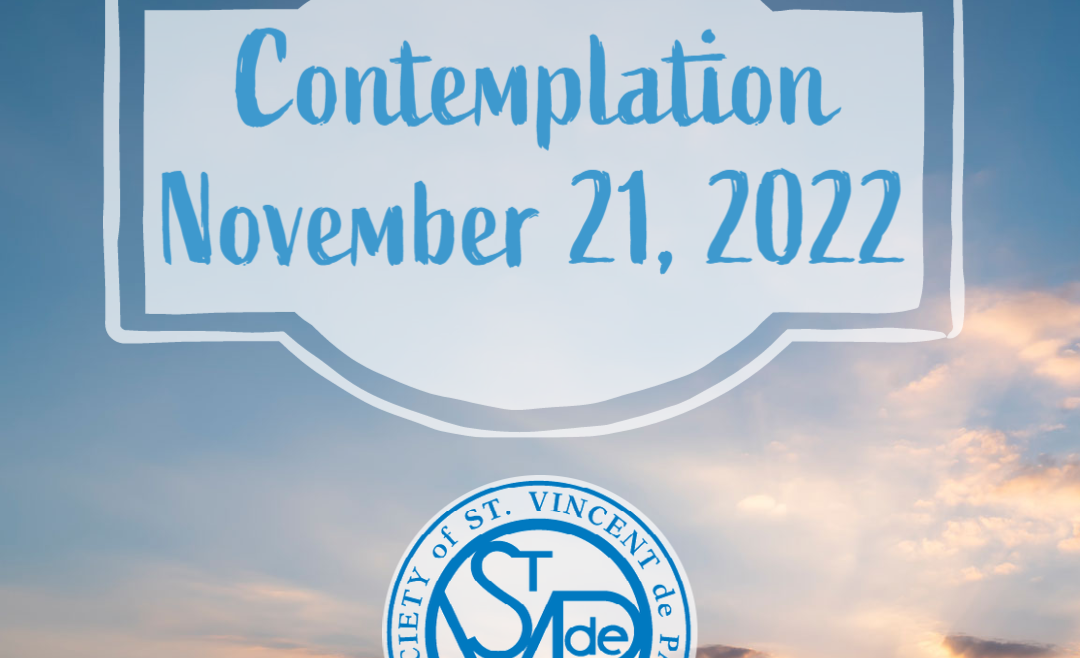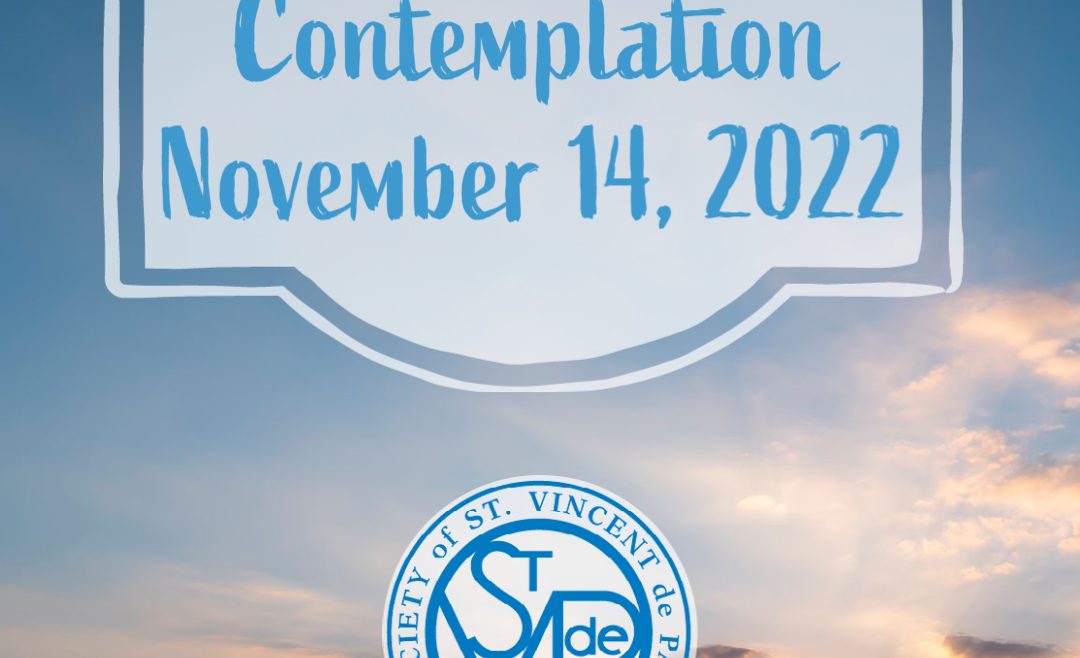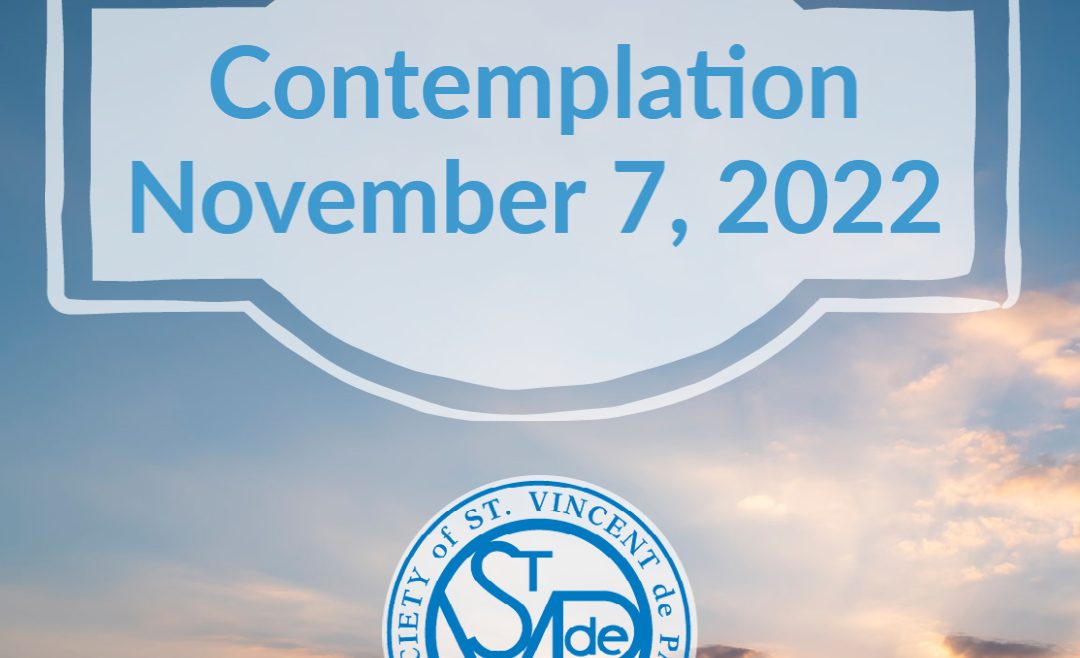There’s an old joke, when a task is incomplete or incorrect, that “it’s close enough for government work!” There is no comparable joke for charitable works, because we have the highest standard possible: we are called to do God’s will as best we can discern it. How can we best help this family? What is the best decision for the Conference? Through prayer and discussion, we come to a consensus that we hope reflects God’s will.
It is true that to begin works of charity, offered for love alone, requires very little discernment because Jesus very specifically told us His will that we should love the neighbor, and serve the least among us! Yet we know that in the course of these works, as we walk our Vincentian pathway, we encounter more questions along the way. We are never really done with seeking God’s will.
Our prayers, individually and together, draw us closer to Him. We offer praise and thanks, and place our needs before Him, but, as Jesus prayed, “not as I will, but as you will.” We seek His will in the answers to our prayers. In our Vincentian friendship, we seek to be of one mind and one heart, “following the example of the blessed Trinity.” [SWLM, 771] We seek to do His will by imitation.
The Society’s primary purpose is our own growth in holiness, towards “perfect union with Christ”. [Rule, Part I, 2.2] That isn’t limited to the works of the Conference, because ours is a “vocation for every moment of our lives”. [Rule, Part I, 2.6]. Both as Vincentians and as Catholics, we are called to discern God’s will for the spiritual journey through our lives.
In between all our talking and doing, we must also stop to listen, to try to hear that tiny whisper in the storm. We must look back upon the events and people in our lives and “re-read” those moments that changed us. We may accept a loss or misfortune as God’s will, but that is only one step. Placing ourselves silently in God’s presence, we also look back to see where that misfortune led us – something we could only know by looking back.
Little by little we move closer to knowing and doing His will and doing it fully. It isn’t the gist of God, it’s the will of God. If that seems very specific, that’s only because it is. God’s will is for each of us, very specifically, because He loves each of us very individually.
To seek and to do His will is nothing more than to love Him back, and when we truly love Him, we are close enough for charitable work.
Contemplate
Consider a moment of conversion in your life. How did it change your heart, and your path?

